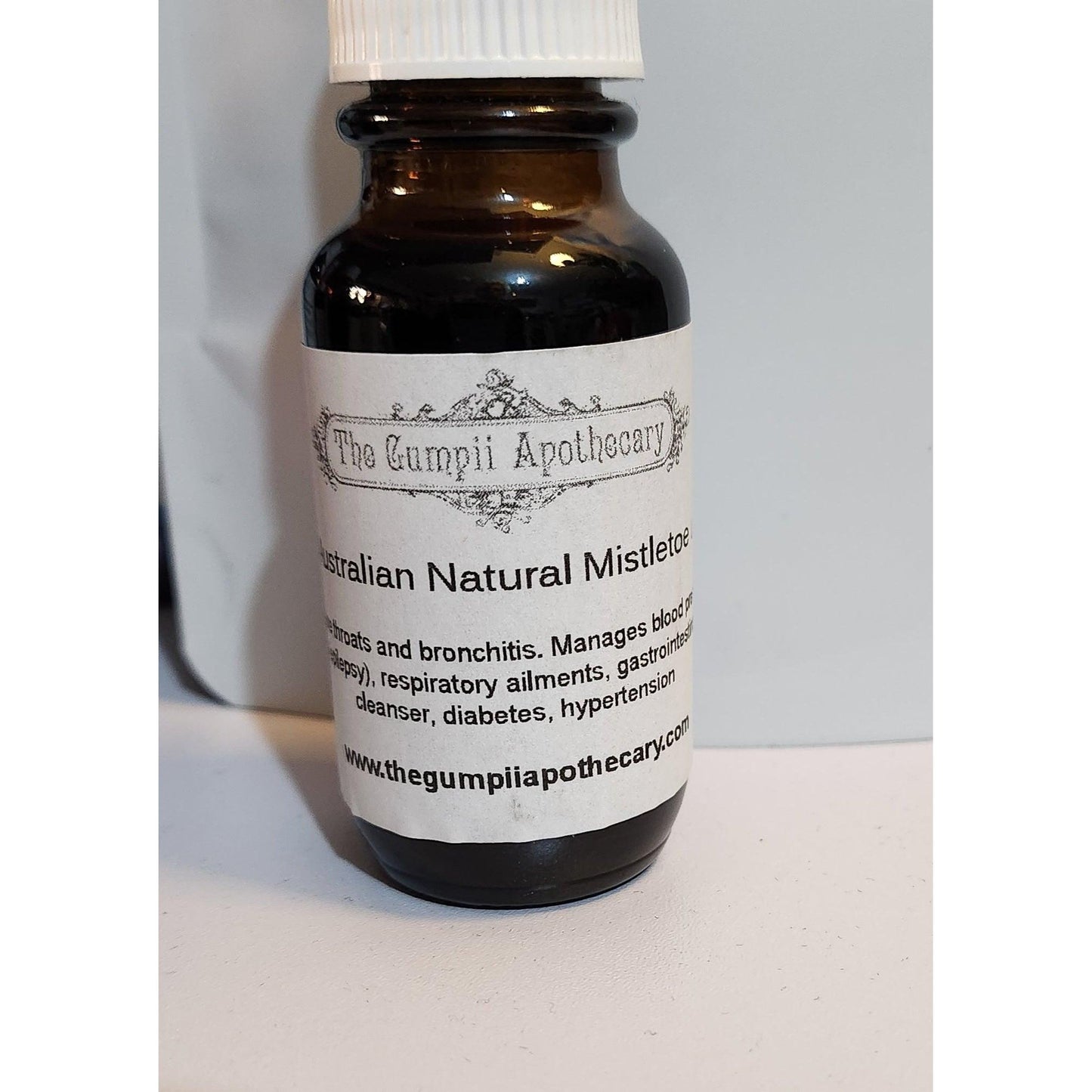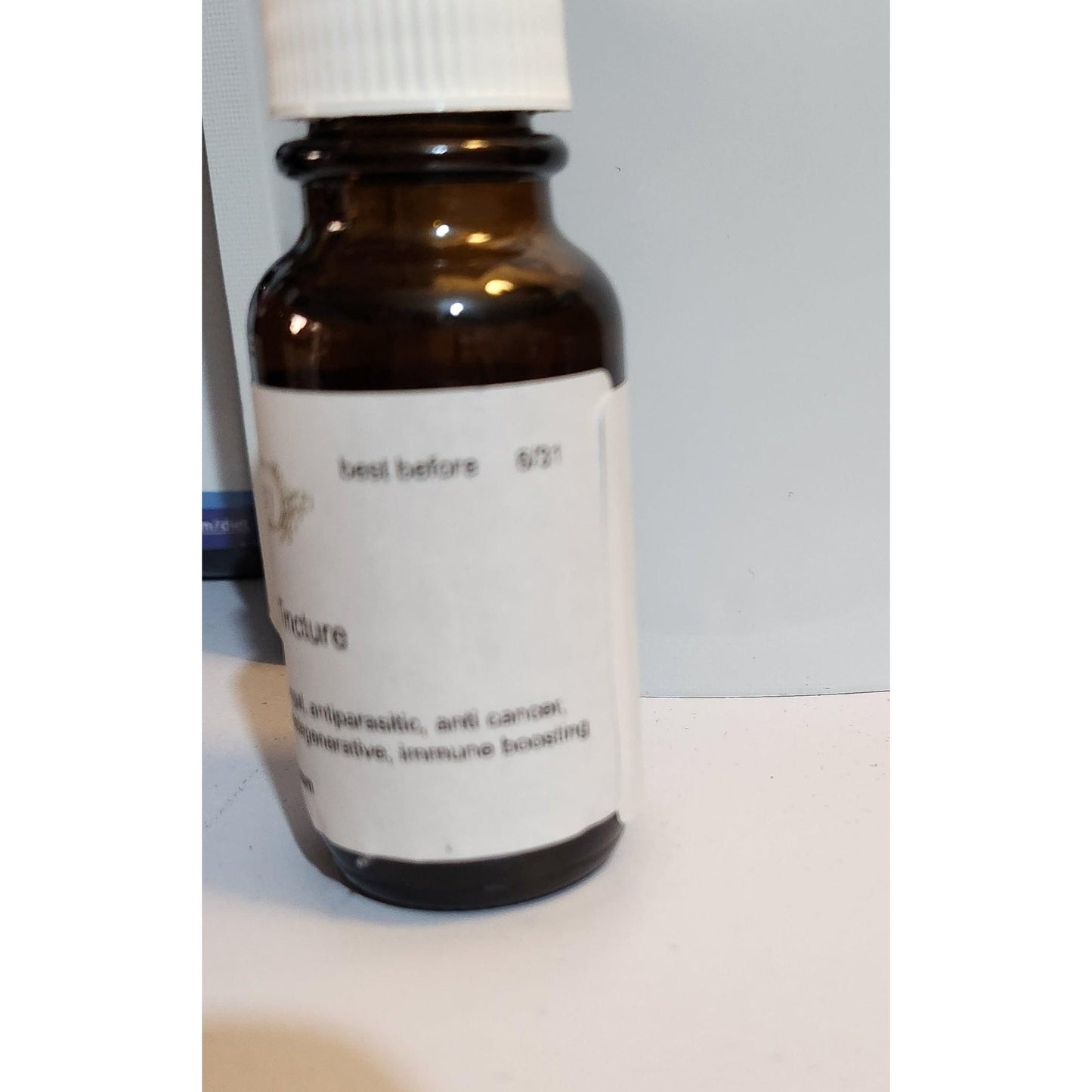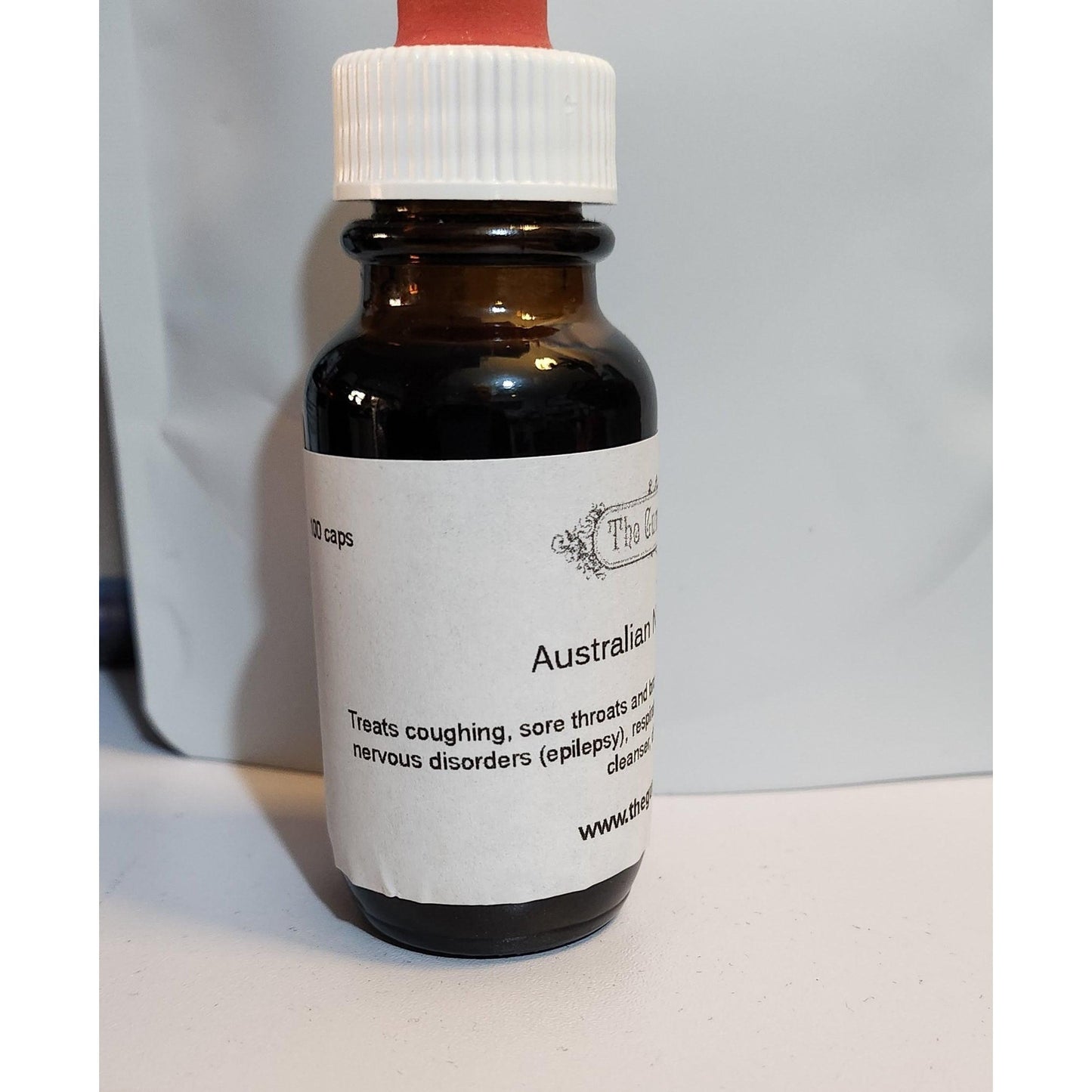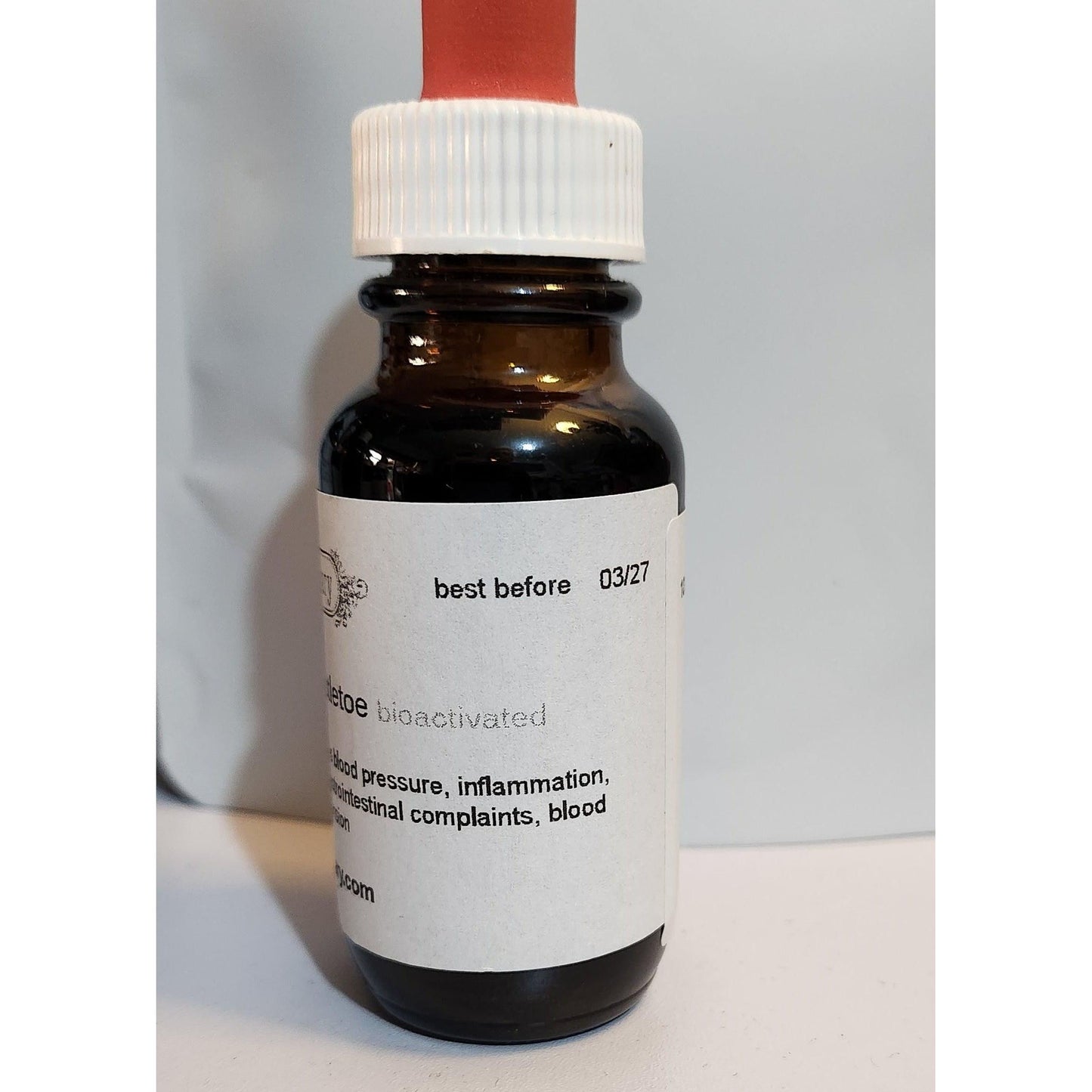Bioactive Aust Mistletoe Tincture 25ml
Bioactive Aust Mistletoe Tincture 25ml
Couldn't load pickup availability
Mistletoe (Viscum album) is a member of the Viscaceae plant family. European mistletoe (Viscum album) is harvested for its leaves, stems, and berries to make herbal extracts, teas, and injections.
Health benefits that have been attributed to mistletoe include improving cardiovascular health, relieving stress and anxiety, and boosting the immune system to help fight off colds and respiratory problems. It is also a popular complementary therapy for cancer treatment in many parts of the world.
Anxiety/Stress
Persistent, ongoing anxiety has a negative impact on day-to-day life.
Mistletoe may have actions that help calm anxiety. Studies suggest that mistletoe can be effective for reducing depression and anxiety in cancer patients.
A good night’s sleep is important for your physical and mental health and can go a long way in helping manage anxiety. Mistletoe has long been used as an herbal remedy for improving sleep. The chemical components in this herb may promote the release of neurotransmitters, like dopamine, to support restful sleep.
Cancer Care
According to the National Cancer Institute, mistletoe is one of the most widely researched alternative therapies for people living with cancer. Research suggests that mistletoe may stimulate the immune system to help fight cancer.
Mistletoe extracts have anti-cancer activity, as mistletoe inhibits cancer cell proliferation (spread) and even kills existing cancer cells in an experimental laboratory setting. Research also suggests that mistletoe can be effective for improving the quality of life of cancer patients.
It might also improve blood counts and even reduce the size of tumors. Some studies show that mistletoe can reduce symptoms such as nausea, loss of appetite, pain, fatigue, and depression/anxiety following chemotherapy treatments.
Cardiovascular Health
Atherosclerosis, a condition associated with chronic hypertension and several other conditions, can lead to vascular diseases, such as heart disease and kidney disease.
Mistletoe may help prevent high blood pressure, helping prevent coronary heart disease and strokes.
Research shows that mistletoe has antioxidant effects, which improves circulation and protects the heart and the blood vessels.8 Mistletoe might also help regulate heart rate.
Immune System and Respiratory Health Support
Mistletoe may help in the initial stages of cold and flu. With its antioxidant, antibacterial, and antiviral properties, mistletoe may boost and support the immune system, helping fight off illnesses.
Though there is not much research on humans, mistletoe has been proven to calm respiratory conditions like asthma in animal studies.
Inflammation
The anti-inflammatory, antioxidant properties of the plant make it a candidate for helping treat chronic inflammatory conditions, such as arthritis.
Inflammation is the body’s response to infection, injury, or disease—but misdirected inflammation is a feature of many autoimmune conditions. 10 Humans have been using mistletoe tinctures for hundreds of years to help reduce inflammation both in and outside of the body.
Research suggests that mistletoe extract might also soothe gastrointestinal issues caused by inflammation and improve digestive health.
Diabetes
Mistletoe has been used for generations to help balance blood sugar levels. Some research supports mistletoe’s potential in treating diabetes.1
Research on animal models shows that mistletoe reduces blood glucose levels and stimulates the production of insulin in pancreatic cells. And one study suggests that mistletoe extract may protect liver cells from free radical damage.
Further studies are needed to understand mistletoe’s role in balancing glucose levels in humans.
Possible Side Effects
When used in the recommended amounts, mistletoe is rarely associated with side effects. Possible side effects—generally experienced when the dosage is too high—include nausea, vomiting, diarrhea, low blood pressure or dizziness.
Injectable forms of mistletoe, such as those used as a natural supplement for cancer patients, may cause pain and inflammation at the injection site, but have not been associated with severe side effects.
Mistletoe is not recommended for use in children or for people who are pregnant or breastfeeding. It is important to speak to a healthcare provider before using mistletoe, particularly if you are on any prescription medications.
Mistletoe may interact with many medications, including anticoagulants, antidepressants, and medications used for treating heart disease or high blood pressure.
Dosage and Preparation
Due to the potency of mistletoe, it is better to start with small amounts to reach the desired effect. Mistletoe is available at health food stores and online as a liquid extract, dried herb, and in pre-prepared tea bags.
Follow all recommended dosages on the labels of commercially available mistletoe products. Dried mistletoe that is used to make tea is recommended at no more than 10 grams per day.
Share








